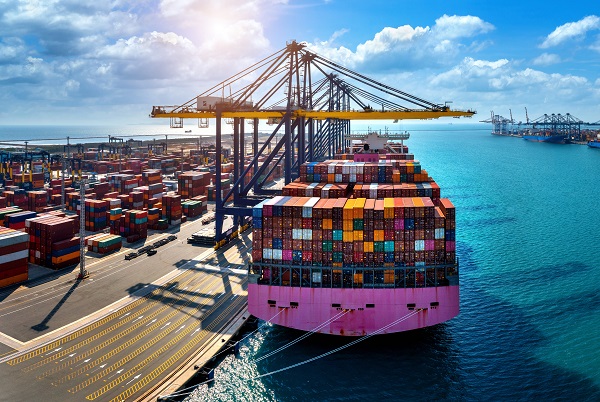Choose the right carrier for your needs
Once you have a good understanding of the size and weight of your cargo, you can begin looking for a carrier that is equipped to handle your shipment. Some carriers specialise in transporting oversized cargo, while others may have more general capabilities. In either case, it is important to choose a carrier that has experience shipping oversized loads and that has the necessary equipment and resources to do so safely. You should also consider the distance your cargo will be travelling and the route it will take, as this may affect the cost of your shipment and the availability of carriers.
Plan your route and obtain any necessary permits
Oversized cargo often requires special permits and approvals to transport, particularly if it will be travelling on public roads. You will need to research the regulations and requirements for shipping oversized cargo in your area, and obtain any necessary permits before you can begin shipping your cargo. You should also plan your route carefully, taking into account any size or weight restrictions that may be in place.
Prepare your cargo for shipping
Before your cargo can be shipped, it will need to be properly prepared for transport. This may include securing loose items, protecting delicate components, and ensuring that the cargo is properly secured to the carrier. You may also need to crate your cargo if it is particularly fragile or if it requires special handling. Working with a shipping company that has experience with oversized cargo can be helpful in this regard, as they will have the knowledge and expertise to properly prepare your cargo for transport.
Coordinate with the carrier
Once you have chosen a carrier and prepared your cargo for shipping, you will need to coordinate with the carrier to arrange for pickup and delivery. This may involve coordinating with the carrier's loading and unloading teams to ensure that the cargo is loaded and unloaded safely, and that any special handling requirements are met. You should also work with the carrier to determine the best method of payment and to finalise the details of your shipment.
Monitor your shipment
Once your cargo is on the road, it is important to monitor its progress to ensure that it arrives at its destination safely and on schedule. You should stay in touch with the carrier and track your shipment using any tracking tools that are available. If you experience any issues or delays, it is important to communicate with the carrier and work with them to resolve any problems as quickly as possible.
In addition to the steps outlined above, there are a few other considerations to keep in mind when shipping oversized cargo to maximise efficiency and minimise risk.
First, it is important to be aware of any size or weight restrictions that may be in place. This can be particularly important if your cargo will be travelling on public roads, as some roads may have restrictions on the size and weight of vehicles that are permitted to use them.
Second, you should consider the mode of transport that will be used to ship your cargo. Different carriers may use different modes of transport, such as air, sea, or land, and each mode has its own pros and cons. For example, air transport may be faster, but it may also be more expensive, while sea transport may be slower but more cost-effective.
Finally, it is important to be aware of any potential issues that may arise during the shipping process. This could include delays, damage to your cargo, or other unexpected events.
By anticipating all of these and having a plan in place to address them, you can minimise risk and ensure that your cargo is transported smoothly and efficiently.
Shipping oversized cargo requires careful planning and attention to detail. By choosing the right logistics services, you can ensure that your cargo arrives at its destination safely and on schedule. An experienced logistics services company has a deep understanding of the shipping process, including the regulations and requirements for transporting oversized cargo.
They will be able to help you navigate the process, ensuring that you have the necessary permits and approvals, and that your cargo is properly prepared for transport. With their vast network of carriers at their disposal, including carriers that specialise in transporting oversized cargo, they can offer their services at competitive rates. They have access to specialised equipment, such as cranes and flatbed trailers, that can be used to load and unload oversized cargo. This can be especially useful if your cargo requires special handling or if it is too large or heavy to be loaded using standard equipment.
An experienced logistics company has processes in place to mitigate risks. Their customer service representatives are trained and equipped to assist you throughout the shipping process, answer your questions, provide updates on the status of your shipment, and address any issues that may arise.
As an experienced logistics services company, we can provide a range of valuable services to help you ship your oversized cargo safely and successfully.


 Back to Blogs
Back to Blogs